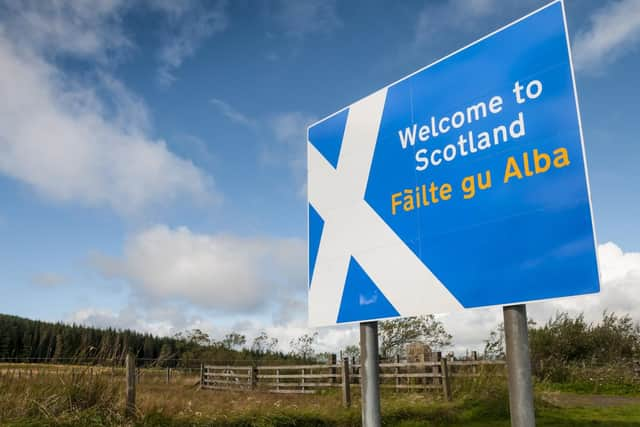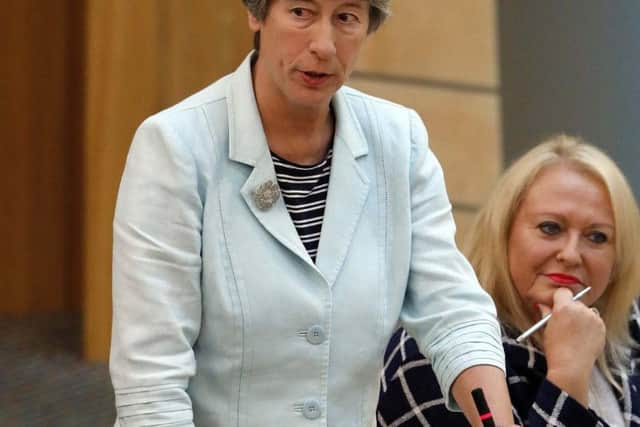MSPs demand apology for 'highly offensive' Tory comments on Gaelic education
Liz Smith, MSP, described the new policy which will see Gaelic become the "default" language for P1 pupils as a "deeply troubling step".
Alasdair Allan, SNP MSP for the Highlands and Islands, is demanding that Ms Smith withdraw her “highly offensive” remarks and apologise.
Advertisement
Hide AdAdvertisement
Hide AdJohn Finnie, Scottish Greens MSP for the Highlands and Island, also said Ms Smith's comments were "offensive and inaccurate".


Pupils starting lessons in Gaelic will learn English from P4 onwards. Parents who want to opt out of the new system can have their children taught in English from P1.
However, Ms Smith, said Gaelic should not be promoted over English.
“This is a deeply troubling step and one that could put children in the Western Isles at a distinct disadvantage to their peers.
“Gaelic is a rich and beautiful language and one that should be encouraged at school, but not at the expense of English.


“This worrying move will inevitably put pressure on primary children in the Western Isles to speak Gaelic for those first crucial years of school.
“That could have all sorts of consequences that have clearly not been considered fully.”
Mr Allan said: “The level of ignorance on display in Liz Smith’s comments is staggering.
Advertisement
Hide AdAdvertisement
Hide Ad“Children educated in Gaelic, far from being ‘disadvantaged,’ come out of school bilingual, and evidence points to them having higher attainment in all areas, including English.
"I would ask Ms Smith to withdraw and apologise for these highly offensive remarks." - Alasdair Allan, SNP MSP for the Highlands and Islands
“The Western Isles are the last place in Scotland were the majority of the population still speak the language. They do so despite ignorant remarks directed at Gaelic speakers down the ages.“I had been under the impression that all parties in the parliament supported both Gaelic and Gaelic medium education.“I would ask Ms Smith to withdraw and apologise for these highly offensive remarks, which show a total lack of understanding of what Gaelic medium education is.”
The new policy from Comhairle nan Eilean Siar - the council for the Western Isles - will see Gaelic become the "default" language for pupils for the first time in some of Scotland's schools.
"A deeply troubling step and one that could put children in the Western Isles at a distinct disadvantage to their peers." - Liz Smith, MSP, Scottish Conservative shadow education spokeswoman.
Meanwhile the Educational Institute of Scotland, (EIS) the country's main teaching union, supported the new policy but stressed the need for adequate staffing levels to give parents the choice of opting out.
"We are supportive of the provision of Gaelic education. But adequate staffing and resources are needed for both options" - EIS spokeswoman.
An EIS spokeswoman said: “The EIS is aware of the importance of Gaelic to the cultural identity of Scotland and also the beneficial educational outcomes which derive from successful language study. We are supportive of the provision of Gaelic education.
"It is essential that parental choice is supported by adequate staffing and resources for both options; indeed appropriate support should be provided to the many living languages in Scotland.”